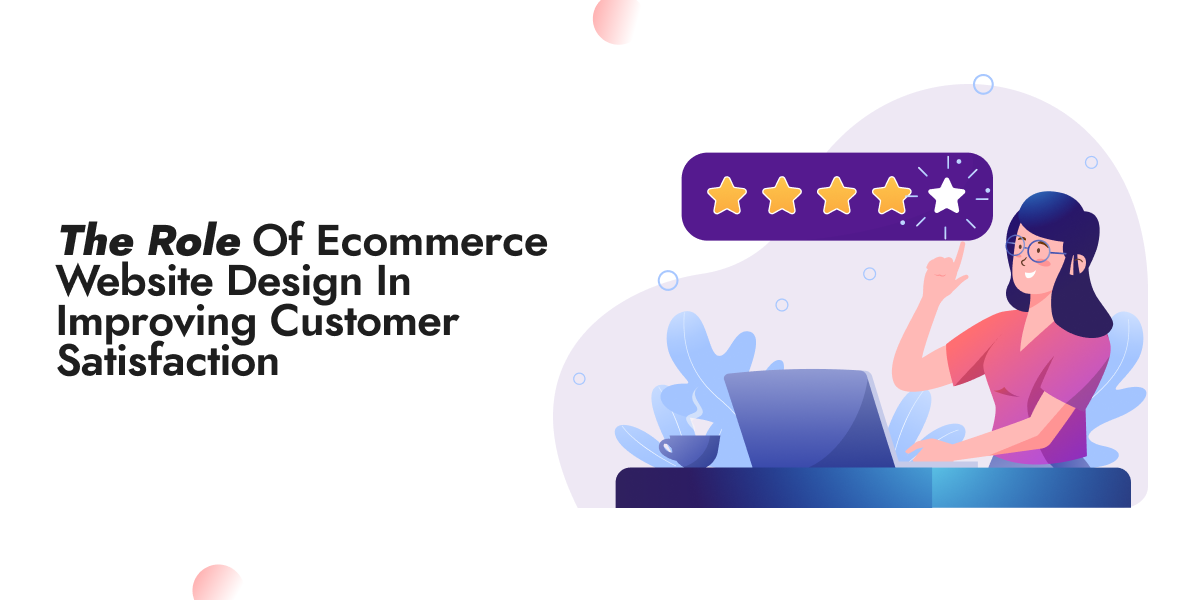The Role of Ecommerce Website Design in Improving Customer Satisfaction

In today’s highly competitive digital marketplace, building strong brand awareness is crucial for any business seeking long-term success.
A well-designed WordPress website can be a powerful tool for achieving this, particularly for eCommerce businesses. It goes beyond just aesthetics, incorporating a mix of user-friendly features, strategic layout elements, and a cohesive brand experience.
Whether you’re an eCommerce website designer or a business owner looking to make an impact online, understanding how to leverage WordPress design effectively can significantly enhance your brand's visibility and reputation.
The Impact of Website Design on Brand Perception
Your website often serves as the first point of contact between your brand and potential customers. In those initial moments, a visitor’s impression of your brand is heavily influenced by the design and functionality of your site.
This is where Shopify website design services and WordPress design come into play, as both platforms offer comprehensive tools to create an engaging and memorable experience.
An intuitive, visually appealing website immediately conveys professionalism and trustworthiness, which are key elements for building brand awareness.
Key WordPress Design Strategies for Brand Awareness
1. Cohesive Branding Elements
Consistency is crucial for brand awareness. Every element of your WordPress website, from the color palette to typography and logo placement, should be aligned with your brand identity.
When visitors can easily recognize your brand's visual language, it fosters familiarity and trust. For eCommerce sites, integrating these elements seamlessly not only reinforces the brand but also creates a more immersive shopping experience.
2. Optimized User Experience
One of the most effective eCommerce site design strategies is to ensure that your website is user-friendly. This involves creating clear navigation paths, simplifying the checkout process, and ensuring that the site is mobile-responsive.
A well-structured, easy-to-navigate site enhances customer satisfaction and keeps visitors engaged longer. The happier and more engaged your users are, the more likely they are to remember and return to your brand.
3. High-Quality Visual Content
The use of high-quality images and videos can significantly impact how a brand is perceived. For eCommerce websites, this means using professional product photography and engaging visuals that showcase your offerings in the best light.
WordPress makes it easy to integrate visual content in a way that is both attractive and functional, ensuring your site stands out.
How an Ecommerce Website Designer Enhances Brand Awareness
Working with an experienced eCommerce website designer can be a game-changer when it comes to establishing a strong online brand presence.
These professionals understand the intricacies of eCommerce platforms like WordPress and can tailor your site to meet the needs of your audience.
From selecting the right themes and plugins to customizing the user interface, a designer can implement strategies that align with your brand and business goals.
Moreover, a professional designer can advise on ways to enhance customer satisfaction, such as adding personalized content, implementing effective call-to-action buttons, and optimizing page load speeds.
These elements are not only essential for a smooth user experience but also play a crucial role in how customers perceive and engage with your brand.
WordPress Features That Strengthen Brand Identity
1. Customizable Themes and Plugins
One of WordPress’s most significant advantages is its extensive library of themes and plugins. These tools allow businesses to customize their sites in ways that perfectly align with their brand image.
From advanced SEO plugins to visually stunning themes, WordPress offers everything needed to build a cohesive and appealing website.
2. SEO and Content Marketing
Effective eCommerce site design strategies should always include a focus on SEO and content marketing. WordPress is highly SEO-friendly, allowing you to optimize content, meta tags, and URLs effortlessly.
By ranking higher in search engines, your brand becomes more visible to potential customers, thereby boosting brand awareness.
3. Integration with eCommerce Platforms
For brands using both WordPress and Shopify, leveraging Shopify website design services alongside WordPress can be a strategic move.
By integrating these platforms, you can create a seamless shopping experience while maintaining a cohesive brand identity. This integration can also simplify inventory management and improve overall site functionality.
Enhancing Customer Satisfaction Through Thoughtful Design
Customer satisfaction is closely tied to how well a website functions and engages its users. When visitors can easily find what they’re looking for and enjoy a smooth browsing experience, they are more likely to have a positive impression of your brand.
Implementing ways to enhance customer satisfaction, such as offering easy navigation, fast-loading pages, and a secure checkout process, is critical in today’s eCommerce landscape.
Furthermore, adding interactive elements like live chat support, customer reviews, and personalized recommendations can make the user experience more engaging.
These features not only keep customers happy but also encourage repeat visits, contributing to brand loyalty and awareness.
Conclusion
In the ever-evolving digital world, WordPress website design has become an essential tool for building and maintaining brand awareness.
By incorporating cohesive branding elements, optimizing user experience, and leveraging advanced features, businesses can create a strong and recognizable online presence.
Whether you’re an eCommerce website designer or a brand owner, focusing on effective design strategies can yield significant benefits.
With the right approach, your WordPress site can serve as a powerful platform for enhancing brand awareness, boosting customer satisfaction, and driving long-term success.

